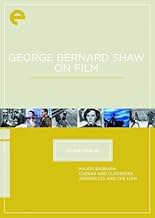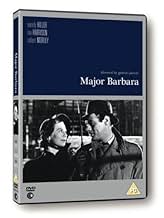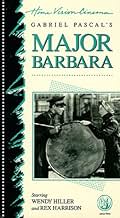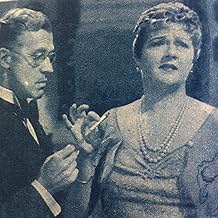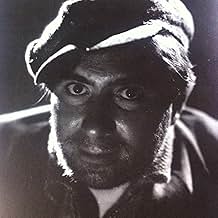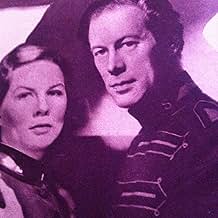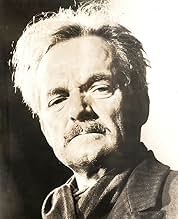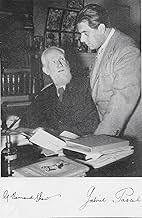A young and idealistic woman, who has adopted the Salvation Army and whose father is an armament industrialist, will save more souls directing her father's business.A young and idealistic woman, who has adopted the Salvation Army and whose father is an armament industrialist, will save more souls directing her father's business.A young and idealistic woman, who has adopted the Salvation Army and whose father is an armament industrialist, will save more souls directing her father's business.
- Awards
- 1 win & 1 nomination total
Featured reviews
No one yet has mentioned the cinematography. I'm no student on this topic, but the scenes where Undershaft gives a tour of his factory and his vision of paradise are truly awe inspiring. There's nothing subtle in it, it is quite vivid for its time. And I think black & white is perfect here. If it were done today in color, I'm sure it would lose something. As someone else said they're not sure why the movie is a comedy. Intentional (as a comedy) or not, t could be this scene.
I haven't seen the movie in years, it is this one scene that lives on in memory above all others.
Although Major Barbara (Windy Hiller) is the title character, the real center of the story is her father, munitions tycoon Andrew Undershaft, played brilliantly by a fairly young, and uncharacteristically lean, Robert Morely. It is he who really moves the progress of the story, just as he has controlled the courses of the lives of his family in absentia for the past twenty years without their even being aware of it. As Barbara smugly repudiates his attempts to contribute his tainted money to save her Salvation Army mission, he ironically reminds her fiancée (and the audience) that she has actually accepted a great deal of it already. In fact, she has been living off his tainted money all her life. Tricked out with a Mephistophelean beard (he is constantly referred to as the "Prince of Darkness, and even his name seems redolent of Hell), Undershaft tempts his daughter and prospective son-in-law to abrogate their life in the Salvation Army for his life in the munitions business.
Undershaft proposes to spend a day in Barbara's Salvation Army mission if she'll agree to spend a day at his munitions works. She agrees because, in her religious zeal, she's convinced she can convert her father. The worldly Undershaft, on the other hand, is equally sure that he can wean his daughter away from a life he perceives as a waste of her time and talent for one where he feels she can really make a difference.
Whether viewers perceive Shaw's story as cynical or realistic depends upon their point of view. Clearly Shaw took the latter view, at least at the time he wrote "Major Barbara". However, perhaps the most remarkable thing about "Major Barbara" is that a film like this should have been produced in Britain at all during the very darkest days of World War II. It is almost impossible to imagine a film such as this being produced in Hollywood at all, let alone during wartime!
This film is an extraordinary historical document! I haven't seen its political philosophy expressed or epitomized anywhere so well as in the movie's final act. The fact that it was filmed in London during The Blitz bombing of 1940 helps provide the production with the behind the scenes gravity or, as Robert Morley's character says , the "anxiety" to make its ideological sentiments, which could easily ring hollow, seem credible. In fact, somehow the movie's Fabian Democratic Socialism manages to surpass even Ayn Rand in its view of man as the measure of all things, thanks to the cagey implication that technological "progress" is the fulfillment of Christian ethics and that the elite are our saviors. "You may be a devil, but sometimes God speaks through you."
This and HG Wells' Things to Come are like comedic and tragic bookends for the Utopian vision of technology as Heaven on Earth, of the industrialist as saint. Here, like a freshly minted coin, before it was cynical or retro, before the appearance of Its antipode, the cinematic Dystopian Hells of the second part of the Twentieth Century, we see the vision of "modernism" in all its glory. Heaven is the "Future" and a secular Holy city of Jerusalem descends from Heaven as the modern industrialized city. This vision of a socialist utopia ruled by an enlightened elite has played a bigger role in our history than is generally acknowledged. It is not acknowledged because the system was successfully implemented, after which it was inconvenient to talk about its existence. Particularly because it was necessary to sustain a false narrative to "steer the 'democracy' from behind the scenes". Predictably this has became leading by deception. This need for deception may have been may anticipated by Fabian social architects like George Bernard Shaw and H.G. Wells as a necessary evil. I would guess that the way such systemic lying leads to corruption may not have been part of the ideology.
Did our self-appointed elite "fallen angels" get lost somewhere along the way and became drunk with unprecedented power and, rather than thinking "God speaks" through them, get seduced into deifying themselves? Or were they themselves manipulated all along by others who had always deified themselves? I'm sure some of our current leaders still believe in this vision, the ones who are not gangsters, Satanists, or both.
To his credit Brad Byrd took a stab at addressing this situation in Tomorrowland.
Did you know
- TriviaFilming went on through the German Blitz. Producer and Director Gabriel Pascal had his own spotter on the roof who blew a horn when he spied German planes. According to Ronald Neame, nobody had told Wendy Hiller, so when the horn sounded during a rehearsal and everybody left, Hiller was bewildered.
- Goofs(at around 1h 35 mins) Just before she scolds her husband for addressing her as "Biddy", a boom mic shadow passes over the lace trim on the bosom of Lady Britomart's (Marie Lohr) gown.
- Quotes
Andrew Underschaft: [to son, Stephen] Well, is there anything you know or care for?
Stephen Underschaft: I know the difference between right and wrong.
Andrew Underschaft: You don't say so! What? No capacity for business? No knowledge of law? No sympathy with art? No pretention to philosophy? Only a simple knowledge of the secret that has baffled all the lawyers, muddled all the men of business, and ruined most of the artists - secret of right and wrong. Why man, you're a genius. A master of masters. A god. And at 28, too.
- Alternate versionsA long final speech by Undershaft (Robert Morley) was filmed but cut before release. The National Film Theatre showed this version many years ago. The British Film Institute lists a print running 136 minutes - some 15 minutes longer than the released version - which presumably is that version.
- ConnectionsFeatured in Discovering Film: Rex Harrison (2015)
- SoundtracksHow Sweet the Name of Jesus Sounds
(uncredited)
Music by Alexander Reinagle (1836)
Words by John Newton (1779)
Arranged by William Walton
- How long is Major Barbara?Powered by Alexa
Details
- Release date
- Country of origin
- Language
- Also known as
- George Bernard Shaw's Major Barbara
- Filming locations
- Royal Albert Hall, South Kensington, London, England, UK(Salvation Army rally scene)
- Production company
- See more company credits at IMDbPro
- Runtime
- 2h 1m(121 min)
- Color
- Aspect ratio
- 1.37 : 1

